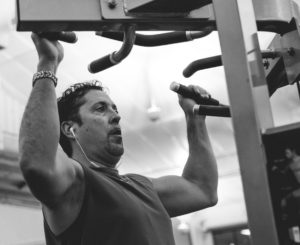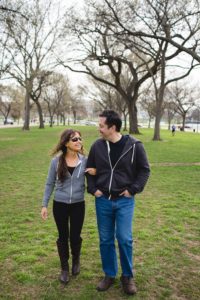Glenn Sabin: Author, Consultant, and Member of the AIM Health Institute Board of Advisors
Who is AIM Health Institute?
We are passionate believers in patient empowerment and personalized care — like Glenn Sabin, Founder of FON Consulting.
Glenn is passionate about patient education, and empowering individuals with the information and resources to take charge of their health and wellbeing. Access to information about Integrative Medicine is critical whether one is making lifestyle changes, incorporating “core pillars” of health into daily routines, or facing serious illness.
Q: You’ve had your own incredible medical journey, which you’ve shared with us in your book n of 1. What were some key factors that enabled you to to build the care team and specific program that would meet your needs?
A: We live in a different world today as compared to 1991 when I was diagnosed with leukemia. Then I did all my research at libraries and bookstores. The internet was not an option. I traveled and met with various people who supported the notion of nutrition, stress reduction, clean water hydration, restorative sleep, select and well-placed supplements, and other evidence-informed and evidence-based approaches to strengthen immune function—to support the host.
Q: You were able to be a powerful advocate for yourself in your own care. What would you say to someone struggling to incorporate Integrative Medicine into their own care?
A: Start with the basics. Incorporate one core pillar at a time. Master that and move to the next. Move your body (to improve your mood and better deal with stress), wean off sugar and processed foods, stop smoking (if applicable). Drink more filtered water. It steps up from there. It’s difficult for most people to do a 180 degree change from where they may be today. Making changes over time, one step at a time, is less overwhelming and helps ensure adherence to health habits over the longer term.·
Q: Did you encounter any obstacles in that process?
Not any that I could not climb over or dismiss. I depended on my Harvard and Hopkins oncologists to be experts in chronic lymphocytic leukemia. I depended on myself and my family—my wife especially—to focus on the host, me. There were so few integrative medicine and integrative oncology practitioners almost 30 years ago. I had no idea how to find them. Today is different.
Q: How did you first get involved in with AIM Health Institute?
A: I was excited to learn from Dr. Kogan that he was interested in creating an organization to serve the local community—those in great need of healing but without access to integrative medicine based on cost or awareness, or both.
Q: You’re involved with many different organizations in the integrative health field. What do you find compelling about AIM in particular?
A: AIM is the only local organization that I have participated in. I’ve seen the needs in the community. When I was diagnosed with a life-challenging disease at 28-years-old—in 1991—there was no real access for anyone wanting to know how they might participate in their own healing. Basic clinical services, education around lifestyle—it just wasn’t there. AIM has an opportunity to both educate and serve the community with clinical engagements.
Q: What excites you about Integrative Medicine, and what do you find most urgent in the field at this time?
A: Integrative medicine, delivered comprehensively, is personalized care. It focuses on the host environment while most traditional interventions focus on the disease.
The most urgent issue is the combination of patient access and education about health creation, and putting patients at the center of their own healthcare. This is especially critical for the underserved and under-insured.
Q: How do you think AIM can help? Where do you think we fit into the picture?
A: AIM has been helping people consistently through its ability to form and nurture partnerships. The ability to raise significant amounts of funding will enable AIM to continue its mission to provide educational and clinical services to those underserved in our community.
Q: What would you say to someone considering giving to AIM?
A: Many of the underserved in our community have the capacity to improve their health with the proper education and support. Donors to AIM are in a unique position to help improve the health of the local community in which they live, and to see, first-hand, where there precious dollars are spent, and the positive impact AIM is making.



